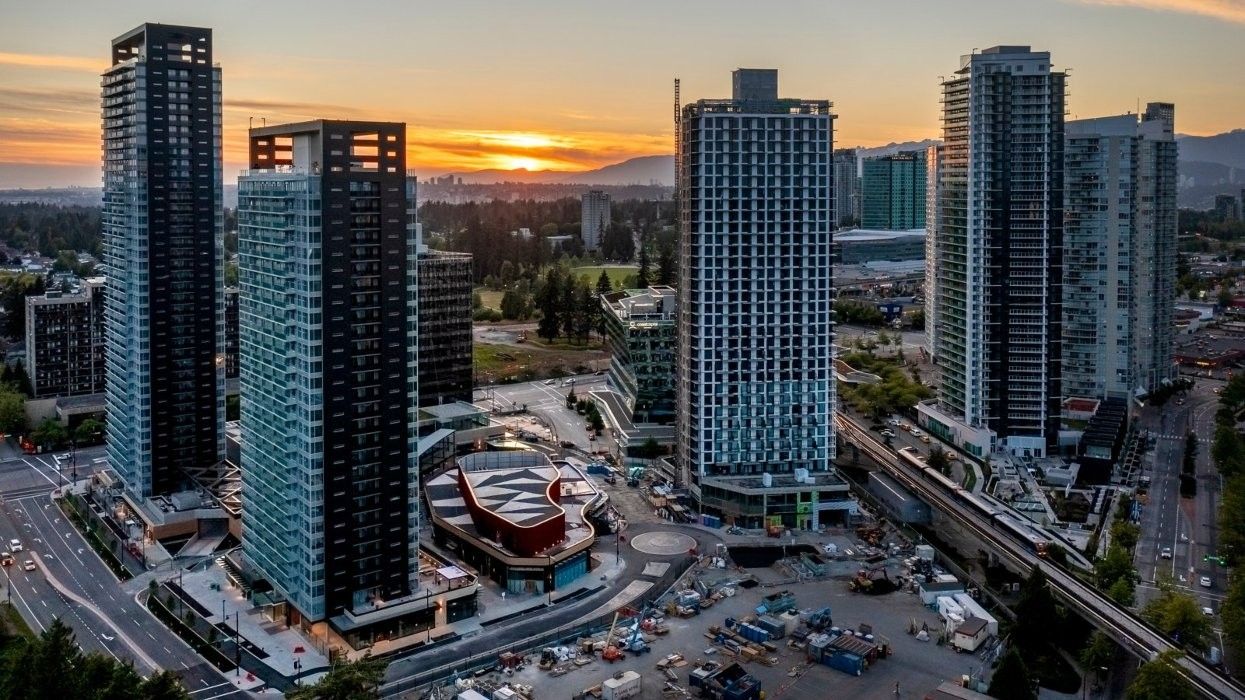On Wednesday, Prime Minister Justin Trudeau and the Government of Canada announced what it says is the largest public transit investment in Canadian history: the $30B Canada Public Transit Fund (CPTF).
The goal of the Canada Public Transit Fund is to help communities expand their public transit infrastructure — the Broadway Subway extension in Vancouver and Finch West rail line project in Toronto were used as examples — and make it more accessible, and the CPTF will deliver funding through three streams.
The first is through 10-year Metro-Region agreements that will "support partnerships between provinces and large urban areas with the largest public transit systems." Funding amounts will be based on merit, with the highest amounts going to the most ambitious partnerships, says the federal government, and will require those regions to develop "Integrated Regional Plans." The federal government says they will be providing $20 million between 2024 and 2026 to support the development of those plans.
The second stream is baseline funding, which will deliver "predictable funding" to communities across the country with existing transit systems based on their population and ridership, in agreements of up to 10 years. "This will help communities of all sizes upgrade, replace, or modernize their transit infrastructure, including system expansion, lifecycle extension, performance upgrades, and investments in the state of good repair of their fleets."
The third and final stream is what the Government calls "targeted funding," which will be delivered on a project-by-project basis, with periodic calls for applications. More information is expected to made available soon.
As seen with the $6B Canada Housing Infrastructure Fund announced in early-April and the existing Housing Accelerator Fund, the federal government is tying funding to the creation of more housing.
"The Canada Public Transit Fund will also complement our work to build more homes faster," the Government of Canada said in a press release on Wednesday. "Through programs like the Housing Accelerator Fund, we're giving cities and towns more money to build more homes – but with a condition: if municipalities want federal funding, they have to change their zoning by-laws to build more housing near transit."
Those changes include:
- Eliminating all mandatory minimum parking requirements within 800 metres of a high-frequency transit line;
- Allowing high-density housing within 800 metres of a high-frequency transit line;
- Allowing high-density housing within 800 metres of post-secondary institutions; and
- Completing a housing needs assessment for all communities with a population greater than 30,000.
The requirements are very similar to legislative requirements the Government of British Columbia introduced in Fall 2023, which identified transit-oriented development areas (TOAs), set minimum heights and densities within them (up to 800 metres away), and barred local governments from setting minimum parking requirements within them. Other legislation the Province introduced also mandated housing needs assessments.
British Columbia's program is not tied to any funding, however, and the federal program is as much about improving public transit as it is about increasing the amount of housing.
The move by the Government of Canada is clearly an attempt to encourage transit-oriented development, although the phrase "transit-oriented development" is conspicuously absent from Wednesday's press release.
According to the federal government, the Canada Public Transit Fund will be a "permanent ongoing program" and funding is expected to begin flowing in 2026. The $30B number is for the first 10 years of the program and an average of $3B is expected to be delivered each year. Each year, approximately $2B will be delivered via the Metro-Region stream, $500M via the baseline funding stream, and another $500M via the targeted funding stream.
"Our government's new Canada Public Transit Fund will invest $30 billion in community infrastructure to expand, improve, and modernize public transit – giving Canadians affordable options to get around, and making sure housing development is linked to that funding," said Prime Minister Trudeau.
"Public transit is an invaluable tool in making people's lives more affordable, tackling climate change, and better connecting communities," added Minister of Housing, Infrastructure, and Communities Sean Fraser. "We are excited and proud to launch the Canada Public Transit Fund today, and with it, to bring a new approach to transit funding in this country. This fund not only gives us an innovative way of working with partners on transit and active transportation projects, but will also go a long way in our work to help build more homes."
- Why Sean Fraser Thinks BC Is "Leading The Country" On Housing Policy ›
- PCI President Tim Grant On The Ins And Outs Of Transit-Oriented Development ›
- BC's Transit-Oriented Development Policy Leaves Many Questions Unanswered ›
- DBS Developments Proposes 40-Storey Purpose-Built Rental ›
- CMHC 'Frequent Builder Framework' Launched To Fast-Track Loans ›
- Feds Unveil 'Canada Public Land Bank' With 56 Properties Set For Housing Development ›
- City of Edmonton Introduces $39M Infill Infrastructure Fund ›
- How The Government Is Approaching The Renters' Bill Of Rights ›
- What Trudeau Has (And Hasn't) Done On Housing ›
- Federal Government Announces $1.5B For TransLink, $250M For Metro Vancouver ›





















